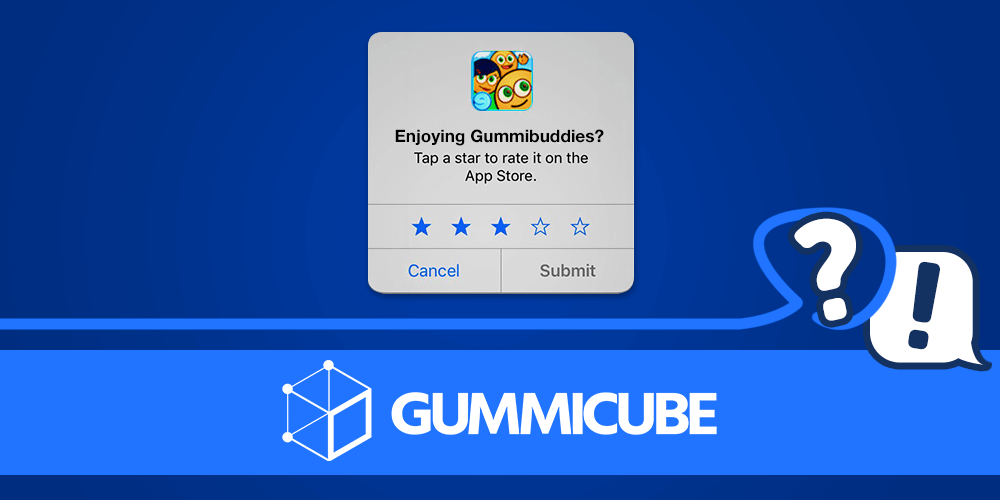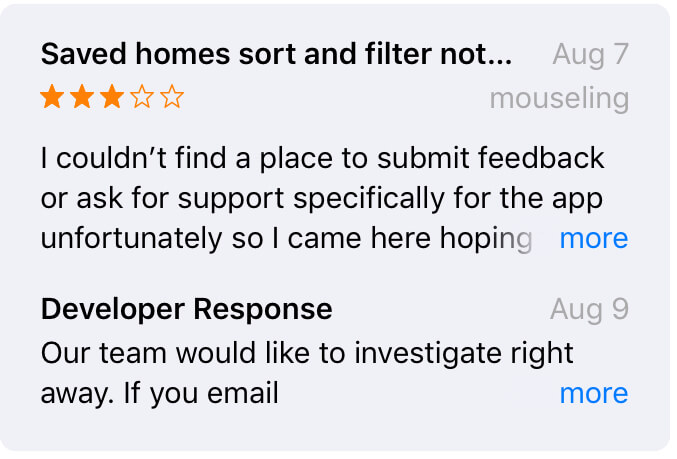
5 Best Practices for Apple Search Ads
Posted on July 3rd, 2024
Are you leveraging Apple Search Ads the right way? Take a look at these recommendations to optimize your paid campaigns and target the right users.

Users are the reason that apps find success. When users thoroughly enjoy an app, or experience difficulties such as performance issues, bugs, glitches, etc., they leave app ratings and user reviews to make sure their voices are heard. Both the iOS and Android platforms allow developers to respond to user reviews and ratings, but not all understand the importance behind it. Apps that are plagued by negative reviews and ratings are at risk of losing out on expanding their audience. 80% of consumers don’t trust star ratings below 4-stars. With that, App developers need to manage their reviews and ratings as a part of their ASO strategy.
Users want to be heard when they like or dislike something strongly, and that idea goes for apps as well. Thanks to user reviews, developers can understand the user experience by seeing first-hand what their audience has to say about their app. In fact, according to Apptentive, 59% of users check the ratings/reviews before installing. If they see low rated apps with negative reviews, they’re less likely to install. By managing their reviews and ratings, developers can pinpoint features that are widely used and liked or acknowledge that there’s a bug that needs immediate attention. The ratings are also reflective of the user experience and let developers understand if it’s positive (4-5 stars), can be improved (3-stars), or if a user dislikes it (1-2 stars). Additionally, reviews and ratings are important for one’s ranking in the app stores. The higher the star rating, the higher the position. Having a great rating (4-stars and above) with loads of positive reviews helps the app stores recognize that users are engaging with the app. For the Google Play Store especially, ratings are one of the few things that are displayed in search results. The higher the rating, the more inclined a user will be to click on your app.  How to Manage Reviews & Ratings Don’t completely ignore their ratings and reviews. Developers need to pay attention to how users are engaging with their app and identify what’s working in addition to any critical stress points. In order to manage their reviews effectively, they’ll need to adopt a Reputation Management strategy. By managing reviews, developers can regularly:
How to Manage Reviews & Ratings Don’t completely ignore their ratings and reviews. Developers need to pay attention to how users are engaging with their app and identify what’s working in addition to any critical stress points. In order to manage their reviews effectively, they’ll need to adopt a Reputation Management strategy. By managing reviews, developers can regularly:
Understanding users’ current experiences is critical to further improving how users engage with the app. Developers should know that not every single review needs to be responded to, but that they should cover a majority. They can respond to a select few positive reviews (4-5 stars) and address all those that are 3-stars and below. By responding to both positive and negative reviews, developers are casting a wide net on who they’re engaging with. They’re also letting those that experienced difficulties know that they’re being heard just as much as those that had an enjoyable experience.  Some other app review best practices to consider are:
Some other app review best practices to consider are:
By taking these steps, developers will be able to effectively communicate with their audience and have a strategy in place for handling both positive and negative reviews. If developers want to encourage users more often to leave feedback, they’ll need to check App Store and Google Play Store guidelines to ensure that they’re not interrupting the user experience. For instance, the App Store discourages developers from using additional buttons or controls to request feedback. Asking at an inappropriate time can lead to a negative review simply because the user couldn’t complete their task on the app.
Managing user reviews and ratings is a necessary and important step that should be included in any ASO strategy. It gives developers a clear direction on understanding the user experience and alerts them to any possible issues that may be occurring. Users want to be heard, and they shouldn’t be ignored. By responding to user reviews, developers are establishing a relationship with their audience. By creating that dynamic, there’s the potential to raise their app’s overall rating as well. Want more information regarding App Store Optimization? Contact Gummicube and we’ll help get your strategy started.

Are you leveraging Apple Search Ads the right way? Take a look at these recommendations to optimize your paid campaigns and target the right users.

Ghostly happenings are among us... and in your app listing too? If you aren't leveraging the power of app seasonality to make relevant tweaks to your store listing you're leaving precious engagement and conversions on the table.

Developers on the iOS App Store should plan in advance of the upcoming Holiday Schedule to allow enough time for apps to get approved during the busy holidays.